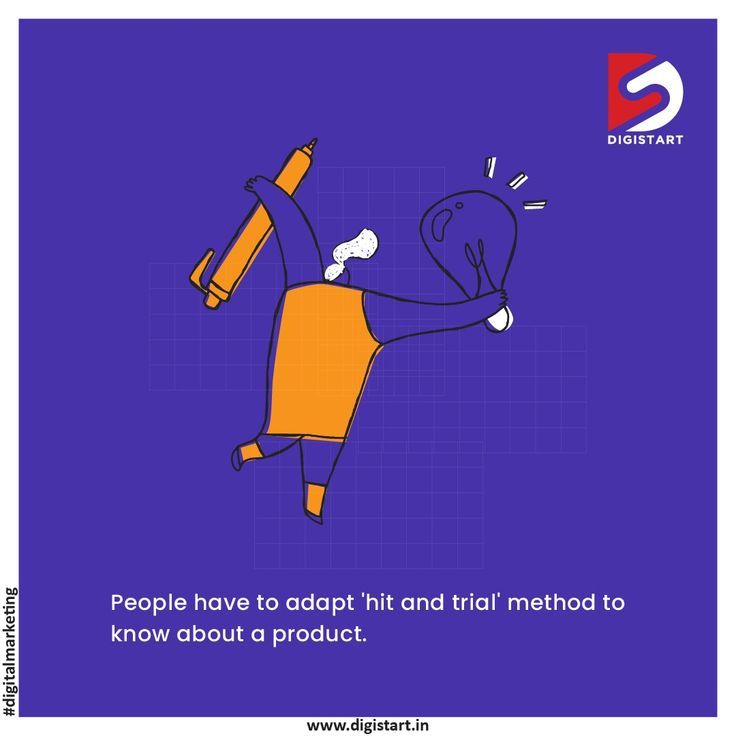Mobile App Marketing: 7 Compelling Reasons to Include Apps in Your Strategy
Mobile app marketing: 7 compelling reasons to include apps in your strategy
In today’s digital landscape, consumers spend an average of 4.8 hours everyday on their mobile devices. This significant shift in consumer behavior has transformed how businesses connect with their audience. While websites and social media remain important, mobile apps offer unique advantages that can dramatically enhance your marketing strategy. This article explores seven compelling reasons why include an app in your marketing strategy is no farseeing optional, but essential for businesses aim to stay competitive.
1. Direct access to your target audience
Peradventure the virtually powerful advantage of mobile apps is the direct line of communication they establish with your customers. Unlike websites or social media platforms where your message compete with countless others, an app creates a dedicated channel for your brand.
With push notifications, you can reach customers instantaneously with timely offers, updates, or reminders. Research show that push notifications have open rates of up to 90 %, importantly higher than email marketing’s average of 20 %. This direct access allows you to:
- Send personalize messages base on user behavior and preferences
- Deliver time sensitive promotions that drive immediate action
- Provide valuable updates that keep your brand top of mind
- Re-engage dormant customers with minimal effort
Unlike third party platforms where algorithm changes can short reduce your visibility, apps give you complete control over when and how you communicate with users who have already express interest in your brand.
2. Enhanced customer experience and engagement
Mobile apps offer a superior user experience compare to mobile websites. Apps can take full advantage of device features like camera, GPS, and biometric authentication to create smoother, more intuitive interactions. This enhances experience translate straightaway to higher engagement metrics.
Consider these statistics:

Source: appmarketingplus.com
- Users spend 88 % of their mobile time in apps versus fair 12 % on mobile browsers
- The average session duration in apps is 4.2 minutes compare to fair 2.7 minutes on mobile websites
- Apps have 3x higher conversion rates than mobile websites
Apps enable features that websites but can not match, such as:
- Offline functionality that keep users engage eventide without internet access
- Streamlined checkout processes with save payment information
- Augmented reality features for product visualization
- Gamification elements that encourage repeat engagement
By offer a superior experience, apps course encourage customers to spend more time interact with your brand, build loyalty and increase lifetime value.
3. Valuable data collection and analytics
Mobile apps serve as powerful data collection tools, provide insights that can transform your entire marketing strategy. With proper permissions, apps can track user behavior, preferences, and engagement patterns with unprecedented detail.
The data collect through your app can help you:
- Understand incisively how customers interact with your products or services
- Identify pain points in the customer journey
- Recognize patterns in purchase behavior
- Segment your audience with remarkable precision
- Test and optimize features base on actual usage data
This wealth of first party data become progressively valuable as third party cookies phase out and privacy regulations tighten. Apps provide a consent base framework for data collection that benefit both businesses and consumers.
With the right analytics implementation, your app become a continuous source of customer insights that inform not exactly your mobile strategy, but all marketing efforts across channels.
4. Build brand loyalty through personalization
Mobile apps excel at deliver personalize experiences that strengthen brand loyalty. Unlike websites where personalization options are limited, apps can tailor virtually every aspect of the user experience base on individual preferences and behavior.
Effective personalization strategies for apps include:
- Customized home screens feature lately view or relevant products
- Personalized recommendations base on purchase history
- Location base offers when customers are near physical stores
- Custom loyalty programs with individualized rewards
- Content feed curate to match demonstrate interests
Research systematically show that personalization drives results: 91 % of consumers are more likely to shop with brands that provide relevant offers and recommendations. Apps make this level of personalization possible at scale.
The continuous presence of your app on a customer’s device to serve as a constant brand reminder. Every time they scroll through their phone, your logo rreinforcesbrand awareness, yet if they don’t open the app that day.
5. Competitive advantage in your market
Despite the clear benefits, many businesses yet haven’t develop mobile apps. This creates a significant opportunity to differentiate your brand, peculiarly in industries where app adoption remain low.
An advantageously design app can position your business as:
- Forward-thinking and innovative
- Customer-centric and focus on convenience
- Commit to long term relationships kinda than one time transactions
- Willing to invest in superior customer experiences
Still in markets where competitors have apps, the quality gap oftentimes remain substantial. Many businesses deploy basic apps that fail to leverage the full potential of the mobile platform. By invest in thoughtful features and intuitive design, your app can stand out eventide in crowded marketplaces.
This competitive advantage extend beyond exactly attract new customers — it besides help retain exist ones by raise switch costs. Once users have personalized your app, store preferences, and become familiar with the interface, they become less likely to try competitors.
6. New revenue streams and increased sales
Mobile apps systematically outperform other digital channels in drive revenue. The combination of frictionless purchasing, personalized recommendations, and instant accessibility create ideal conditions for conversion.
Apps can boost revenue through multiple mechanisms:
- In-app purchases that feel seamless compare to website checkout processes
- Subscription models that leverage easy auto-renewal options
- Premium feature or content that users can unlock for additional fees
- Mobile exclusive offers that drive immediate conversions
- Loyalty programs that encourage repeat purchases
The numbers support this revenue potential: mobile apps have conversion rates up to 3x higher than mobile websites and average order values that are 40 % higher. Users who download your app besides typically represent your about valuable customer segment, with higher lifetime values than website only customers.
Beyond direct sales, apps can open exclusively new business models. Features like premium subscriptions, exclusive content, or digital products can create revenue streams that wouldn’t be viable through other channels.
7. Integration with overall marketing ecosystem
Mobile apps don’t exist in isolation — they function as powerful components within your broader marketing ecosystem. When decently integrate, apps can enhance the effectiveness of all your marketing channels.
Strategic integrations include:
- Connect app data with your CRM to create unified customer profiles
- Use app engagement to trigger email campaigns
- Leverage app analytics to optimize social media advertising
- Create cross channel loyalty programs that drive app downloads
- Use QR codes in physical marketing materials to encourage app installation
Apps besides bridge the gap between online and offline experiences. Features like in store mode, barcode scanning, or location base notifications create seamless transitions between digital and physical interactions with your brand.
This omnichannel capability become progressively important as customer journeys grow more complex. Modern consumers seldom follow linear paths to purchase, rather move between channels repeatedly. Apps provide consistency throughout these fragmented journeys.
Implement an app in your marketing strategy
While the benefits of include an app in your marketing strategy are clear, successful implementation require careful planning. Consider these key factors when develop your app strategy:
Define clear objectives
Before development begin, establish specific goals for your app. Do you mainly focus on increase sales, improve customer service, collect data, or build brand loyalty? Your objectives will guide every aspect of app design and functionality.
Understand your audience
Research your target users’ preferences, pain points, and mobile behaviors. Which feature would provide the most value? What problems can your app solve? User research should inform every decision in the development process.

Source: blog.hurree.co
Focus on core functionality
Resist the temptation to include every possible feature in your initial release. Start with core functions that deliver clear value, so expand base on user feedback and behavior data. This approach reduce development costs and speeds time to market.
Prioritize user experience
Yet the virtually innovative features will fail if the user experience is poor. Invest in intuitive navigation, fast loading times, and streamlined processes. Remember that users typically decide whether to keep an app within the first few interactions.
Plan for promotion
An app just delivers marketing benefits when people download and use it. Develop a comprehensive promotion strategy across all channels to drive installation. Consider incentives for downloads, such as exclusive discounts or content.
Measure and optimize
Implement robust analytics from day one to track key performance indicators. Regularly analyze user behavior and feedback to identify improvement opportunities. Successful apps evolve endlessly base on data insights.
Overcome common objections
Despite the compelling benefits, some businesses hesitate to invest in app development. Let’s address the about common objections:
Cost concerns
While custom app development represent a significant investment, modern development platforms and approaches have make apps more accessible to businesses of all sizes. Progressive web apps and low code development tools offer cost-effective alternatives to amply native applications for businesses with limited budgets.
Maintenance requirements
Apps do require ongoing maintenance and updates, but these costs should be viewed as investments in a valuable marketing channel kinda thaview graphph. Regular updates besides provide opportunities to announce new features are-engageage users.
Crowded app marketplace
While app stores contain millions of applications, most users download comparatively few apps in your specific category. With proper marketing and a focus on deliver unique value, your app can however achieve significant adoption within your target audience.
Website alternatives
Some businesses question whether a responsive website is sufficient. While mobile optimize websites are essential, they can not match the engagement, personalization, and conversion potential of native apps. The ideal approach combine both channels to meet different customer needs.
Conclusion
Include an app in your marketing strategy is no farseeing but an option for forward moving thinking businesses — it’s become a necessity for any company serious about digital customer engagement. The direct access to customers, enhance user experience, valuable data collection, personalization capabilities, competitive differentiation, revenue potential, and ecosystem integration provide compelling reasons to invest in mobile app development.
As consumer behavior continue to shift toward mobile first interactions, businesses without app strategies risk fall behind more innovative competitors. By thoughtfully implement an app that deliver genuine value to users while support your marketing objectives, you can create a powerful asset that drive results across your entire business.
The about successful businesses recognize that mobile apps aren’t but another marketing channel — they’re platforms for build deep, more valuable customer relationships in a progressively digital world.



